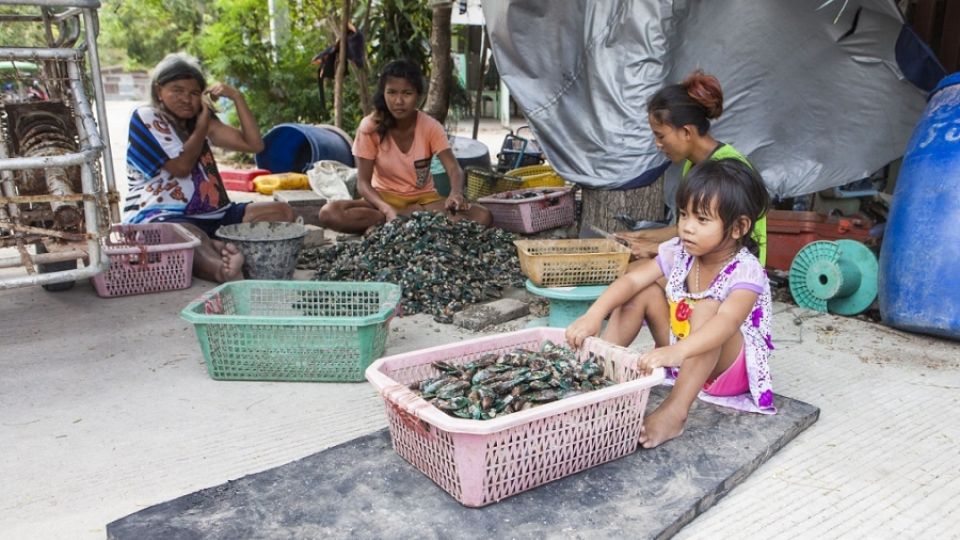The Pollution Control Department has lately stepped up for a decisive legal action against the polluting factory belonging to the Win Process Company. This comes after a decade of numerous complaints about the impacts of leaked toxic chemicals that have polluted the local farmland and crops in Nong Phawa, Ban Khai District, Rayong Province. The pollution has had very negative effects on the livelihood of local communities. This case shows that it is necessary to demand a Pollutant Release and Transfer Register [1].
Not only does Thailand have to process its own waste, it also faces a significant amount of waste imported from other countries. Because of weak legislation regulating the construction and operation of recycling plants, many of them release hazardous substances into the environment and endanger the health of local communities. This is also the case for Nong Phawa, Ban Khai District, Rayong Province. For several years, communities and citizens from this area have been reporting to Ecological Alert and Recovery Thailand (EARTH) that polluted wastewaters from the Win Process Company have destroyed their rubber plantation and ruined their crops, which has had a negative effect on their livelihood. The Win Process Company deals with recycling hazardous industrial chemicals, including residual used oil and lubricants, industrial paint waste, contaminated chemical containers, acids, bases and solvents, etc.
After numerous petitions submitted by the local villagers to various relevant agencies over the pollution caused by the Win Process Company’s factory, eventually the Pollution Control Department examined the compound of the Win Process Company. The company is accused of discharging wastewater, thus affecting farmland and surface water and killing rubber trees. Within this case, an area of pollution control and chemical disaster was declared here. The company will be sued for the wastewater leakage.
“Companies have to be held accountable and their work should not have a negative effect on the livelihood of the people living in the surrounding areas. For this to take place we need to use the instruments at our disposal, such as a Pollutant Release and Transfer Register (PRTR) and the public right to know. When there are plans to build such factories dealing with pollutants, the authorities should ask for an Environmental Impact Assessment (EIA) [2] and, even better, for an Environmental Health Impact Assessment (EHIA) when there are toxic recycling activities,” explains Penchom Saetang, the director of EARTH [3]. “These are the instruments that have the power to change the current state here in Thailand,” she adds.
PRTR is a system for collecting and disseminating information about environmental releases and transfers of hazardous substances from industrial facilities. It is a fundamental tool for citizens’ right to know, as well as for institutions and facilities themselves to control releases of substances used or produced in the manufacturing process. “If such a system worked in Thailand, it would be easy to find out what hazardous substances are getting into the environment and where from. It would be easier to remedy and prevent situations where the environment and human health are damaged, as is the case in Nong Phawa, Ban Khai District, Rayong Province. Not only communities living in a given area have the right to know who is releasing toxic chemicals into the environment and in what amount. Helping local communities to assert their rights to information is one part of EARTH’s mission in Thailand. Thanks to joint activities, after many years of efforts, the negative impact of the Win Process Company was at least partially reduced,” adds Miroslava Jopkova, the project coordinator from Arnika’s Toxics and Waste Programme.
The 2019–2022 joint project of the NGOs Arnika [4] and EARTH "Increasing Transparency in Industrial Pollution Management through Citizen Science and EIA System Enhancement" is funded by the European Union (EU) and co-funded by the Ministry of Foreign Affairs of the Czech Republic within the framework of the Transition Promotion Programme. Supporting local communities and their right to know is one of the main goals of the project.

[1] PRTR – Pollutant Release and Transfer Register – is a register providing easily accessible key environmental data from industrial facilities.
[2] The purpose of an Environmental Impact Assessment (EIA) is to ensure that the environmental effects of a proposed development are properly considered.
[3] Ecological Alert and Recovery Thailand (EARTH) is an independent non-governmental organization striving for social and environmental sustainability and justice in Thai society. EARTH serves as a watchdog monitoring the Thai government’s industrialization policy, industrial pollution, and unsustainable consumption patterns. It also promotes climate justice, good governance, and the accountability of governmental and international agencies. The main focus of EARTH’s interest is the impacts of hazardous substances on ecosystems, local communities, and workers’ health. Read more at www.earththailand.org/en.
[4] The Czech non-governmental organization Arnika focuses on nature conservation, toxics and waste management, and public participation in decision making on environmental issues. During its existence, Arnika has become a valued European NGO in terms of fighting against toxic substances and chemicals or unsafe contamination of the environment and enhancing the spreading of the right to have information about chemical pollution. The organization cooperates with a number of partners around the globe (e.g. in Ukraine, Armenia, and Bosnia and Herzegovina) to provide a better and healthier future for as many as possible, regardless of the geographical location.







